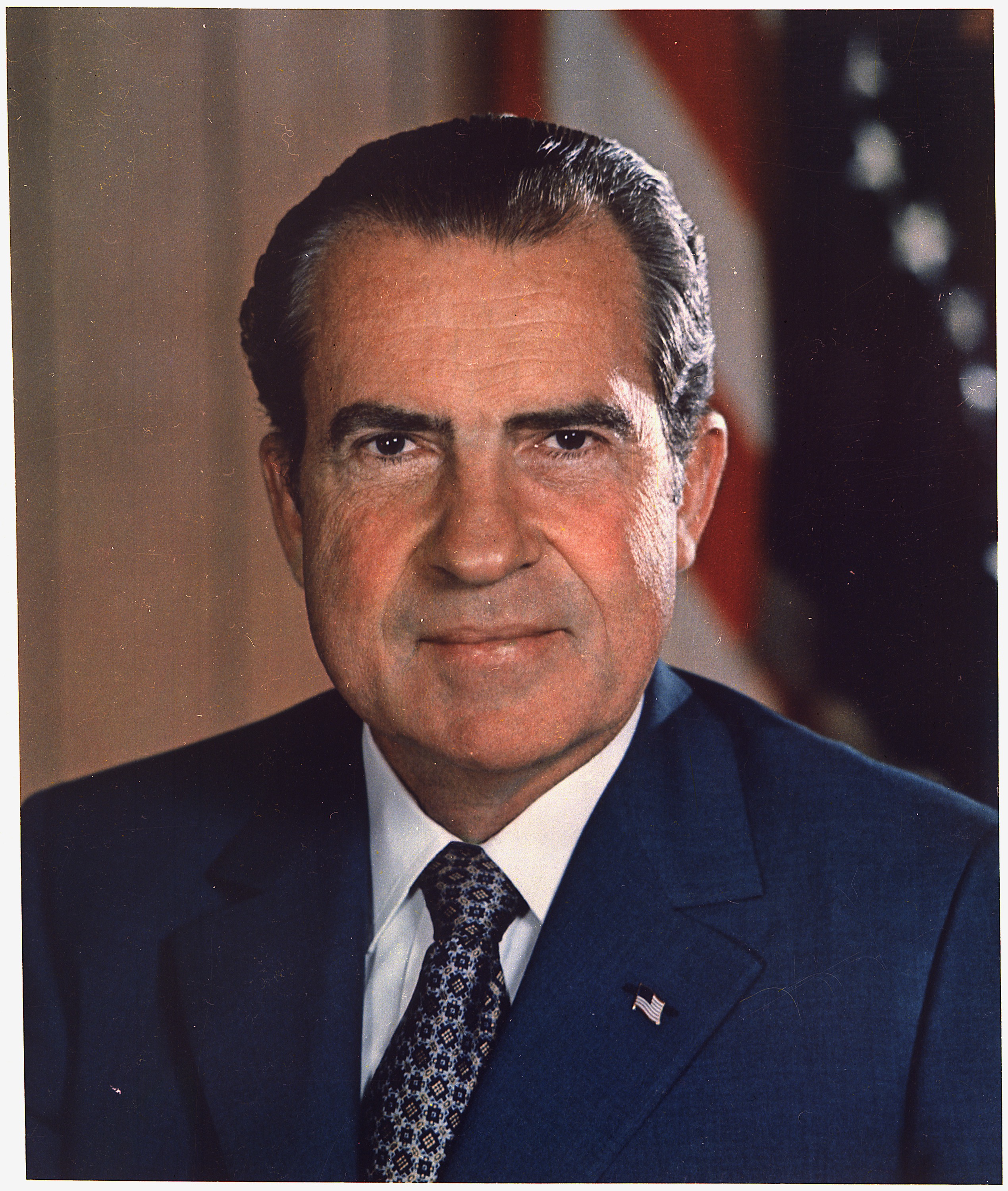Richard Milhous Nixon was the 37th President of the United States from 1969 until 1974 and the only president to resign from the position. He had previously served as the 36th Vice President of the United States from 1953 to 1961, and prior to that as both a U.S. Representative and Senator from California.
Nixon was born in Yorba Linda, California. After completing his undergraduate studies at Whittier College, he graduated from Duke University School of Law in 1937 and returned to California to practice law. He and his wife Pat moved to Washington in 1942 to work for the federal government. He subsequently served on active duty in the U.S. Navy Reserve during World War II. Nixon was elected to the House of Representatives in 1946 and to the Senate in 1950. His pursuit of the Hiss Case established his reputation as a leading anti-communist and elevated him to national prominence. He was the running mate of Dwight D. Eisenhower, the Republican Party presidential nominee in the 1952 election. Nixon served for eight years as Vice President, becoming the second-youngest vice president in history at age 40. He waged an unsuccessful presidential campaign in 1960, narrowly losing to John F. Kennedy, and lost a race for Governor of California to Pat Brown in 1962. In 1968, he ran for the presidency again and was elected, defeating incumbent Vice President Hubert Humphrey.
Nixon ended American involvement in the war in Vietnam in 1973 and brought the American POWs home, and ended the military draft. Nixon's visit to China in 1972 eventually led to diplomatic relations between the two nations and he initiated détente and the Anti-Ballistic Missile Treaty with the Soviet Union the same year. His administration generally transferred power from Washington D.C. to the states. He imposed wage and price controls for ninety days, enforced desegregation of Southern schools, established the Environmental Protection Agency and began the War on Cancer. Nixon also presided over the Apollo 11 moon landing, which signaled the end of the moon race. He was reelected in one of the largest electoral landslides in U.S. history in 1972 when he defeated George McGovern.
In his second term, Nixon ordered an airlift to resupply Israeli losses in the Yom Kippur War, resulting in the restart of the Middle East peace process and an oil crisis at home. The Nixon administration supported a coup in Chile that ousted the government of Salvador Allende and propelled Augusto Pinochet to power. By late 1973, the Watergate scandal escalated, costing Nixon much of his political support. On August 9, 1974, he resigned in the face of almost certain impeachment and removal from office. After his resignation, he was issued a controversial pardon by his successor, Gerald Ford. In 20 years of retirement, Nixon wrote nine books and undertook many foreign trips, helping to rehabilitate his image into that of elder statesman. He suffered a debilitating stroke on April 18, 1994 and died four days later at the age of 81.
✵
9. January 1913 – 22. April 1994
•
Other names
Richard Milhous Nixon,
Ричард Никсон
